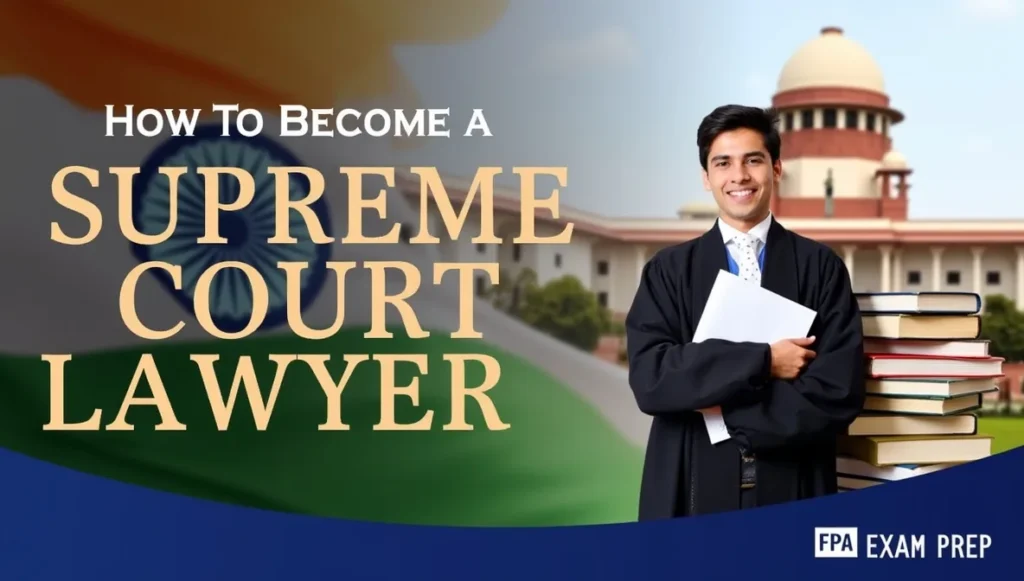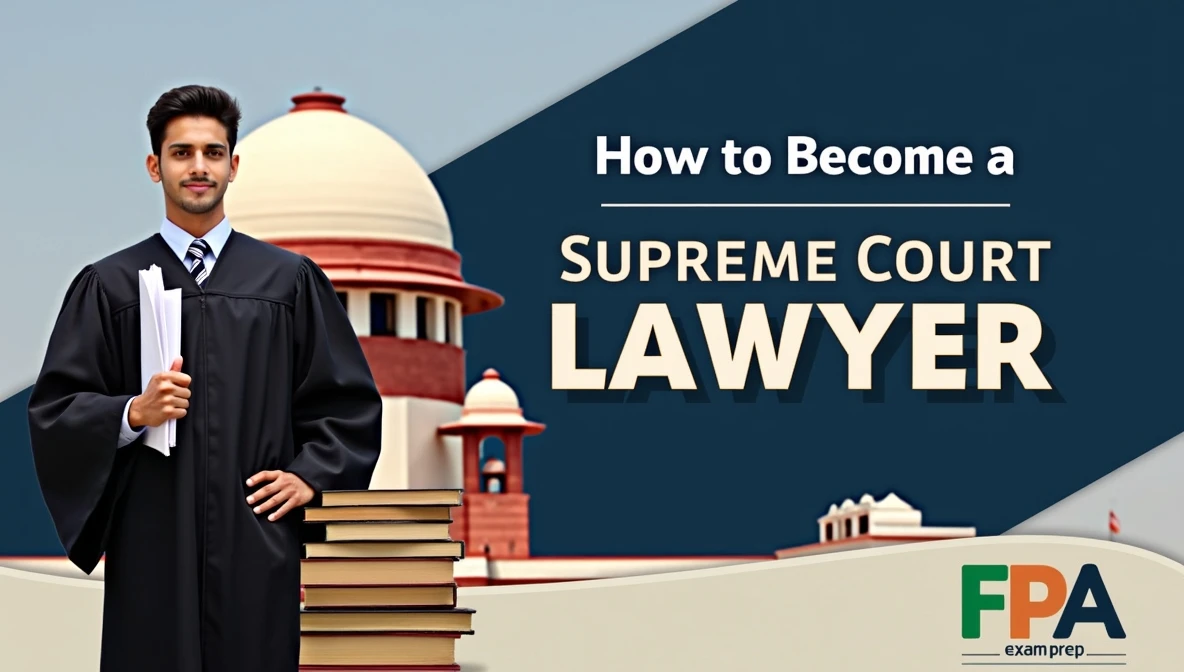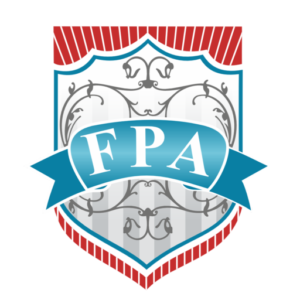
Becoming a Supreme Court lawyer in India is a prestigious and rewarding career path that demands dedication, legal expertise, and strategic planning. At FPA Exam Prep, we guide aspiring legal professionals to achieve their dream of practicing in the Supreme Court of India. This guide outlines the essential steps to become a Supreme Court lawyer, packed with actionable insights and tips to help you succeed.
Step 1: Understand the Role of a Supreme Court Lawyer
A Supreme Court lawyer represents clients in India’s highest judicial authority, handling complex constitutional, civil, and criminal cases. This role requires exceptional legal knowledge, advocacy skills, and a deep understanding of Supreme Court procedures. Keywords: Supreme Court lawyer, legal career, advocacy skills, Indian judiciary.
Step 2: Obtain a Law Degree
To embark on this journey, enroll in a recognized law program:
- Pursue a 5-year integrated LLB: Programs like BA LLB or BBA LLB from top universities are ideal for undergraduates.
- Opt for a 3-year LLB: If you already have a bachelor’s degree, pursue a 3-year LLB program.
- Choose reputed institutions: Universities like NLSIU Bangalore, NLU Delhi, or other NLUs offer rigorous training. FPA Exam Prep provides tailored coaching for law entrance exams like CLAT, AILET, and LSAT to secure admission to top law schools.
SEO Tip: Enroll in law programs with high placement rates to boost your legal career in India. Keywords: law degree, LLB program, CLAT coaching, top law schools.
Step 3: Clear the All India Bar Examination (AIBE)
After earning your LLB, pass the All India Bar Examination (AIBE) to obtain a Certificate of Practice from the Bar Council of India (BCI). This license is mandatory to practice law in India, including at the Supreme Court. FPA Exam Prep offers comprehensive AIBE coaching with mock tests and study materials to ensure success.
Pro Tip: Stay updated on AIBE syllabus changes and practice with previous years’ papers. Keywords: AIBE exam, Bar Council of India, law practice license, AIBE coaching.
Step 4: Gain Practical Experience
Practical experience is crucial for aspiring Supreme Court lawyers:
- Join a law firm or senior advocate: Work under experienced lawyers handling Supreme Court cases to learn courtroom procedures and case strategies.
- Litigation experience: Start practicing in lower courts (district or high courts) to build advocacy skills.
- Internships: Intern with Supreme Court advocates or law firms to understand case filings, legal research, and drafting.
FPA Exam Prep connects students with internship opportunities and mentorship programs to accelerate their legal career path. Keywords: Supreme Court internship, legal experience, advocacy training.
Step 5: Register as an Advocate-on-Record (AoR)
To practice independently in the Supreme Court, you must become an Advocate-on-Record (AoR):
- Eligibility: Complete at least one year of training under an existing AoR and have four years of legal practice.
- AoR Examination: Pass the Supreme Court’s AoR exam, which tests knowledge of constitutional law, drafting, and court procedures.
- Preparation: FPA Exam Prep offers specialized AoR coaching with expert faculty, mock exams, and study resources tailored to the AoR syllabus.
SEO Tip: Optimize your preparation with AoR coaching to excel in the Supreme Court advocate exam. Keywords: Advocate-on-Record, AoR exam, Supreme Court practice.
Step 6: Build a Strong Professional Network
Networking is key to establishing yourself as a Supreme Court lawyer:
- Attend legal seminars, workshops, and bar association events.
- Connect with senior advocates, judges, and peers in the legal fraternity.
- Join professional bodies like the Supreme Court Bar Association (SCBA).
FPA Exam Prep organizes networking events and webinars with legal experts to help you build connections. Keywords: legal networking, Supreme Court Bar Association, lawyer mentorship.
Step 7: Master Legal Research and Drafting
Supreme Court cases demand impeccable legal research and drafting skills:
- Legal Research: Master tools like SCC Online, Manupatra, and Indian Kanoon for case law analysis.
- Drafting: Learn to draft Special Leave Petitions (SLPs), writ petitions, and affidavits with precision.
- Stay Updated: Keep abreast of landmark judgments and amendments in constitutional and statutory laws.
FPA Exam Prep’s courses include modules on legal research and drafting to sharpen your skills. Keywords: legal research tools, drafting petitions, Supreme Court cases.
Step 8: Develop Advocacy and Communication Skills
Effective advocacy is the hallmark of a Supreme Court lawyer:
- Courtroom Etiquette: Learn Supreme Court protocols, such as addressing judges and presenting arguments concisely.
- Moot Courts: Participate in moot court competitions to hone advocacy skills.
- Public Speaking: Practice clear and persuasive communication to argue cases effectively.
Enroll in FPA Exam Prep’s advocacy workshops to refine your courtroom skills. Keywords: advocacy skills, moot court, Supreme Court etiquette.
Step 9: Stay Committed to Continuous Learning
The legal field evolves constantly. Stay ahead by:
- Reading Supreme Court judgments and legal journals.
- Attending continuing legal education (CLE) programs.
- Specializing in areas like constitutional law, taxation, or intellectual property for a competitive edge.
FPA Exam Prep offers advanced courses and webinars to keep you updated on Indian legal trends. Keywords: continuous legal education, Supreme Court judgments, legal specialization.
Step 10: Maintain Ethical Standards
Supreme Court lawyers must uphold the highest ethical standards:
- Adhere to the Bar Council of India’s rules of professional conduct.
- Maintain client confidentiality and avoid conflicts of interest.
- Demonstrate integrity in all legal proceedings.
Pro Tip: Ethics build trust and reputation in the Indian legal profession. Keywords: legal ethics, Bar Council rules, professional integrity.
Why Choose FPA Exam Prep?
At FPA Exam Prep, we empower aspiring lawyers with:
- Expert-led coaching for CLAT, AIBE, and AoR exams.
- Comprehensive study materials and mock tests.
- Mentorship from experienced Supreme Court advocates.
- Networking opportunities and career guidance.
Start your journey to becoming a Supreme Court lawyer with FPA Exam Prep today! Visit fpaexamprep.com for personalized coaching and resources.


